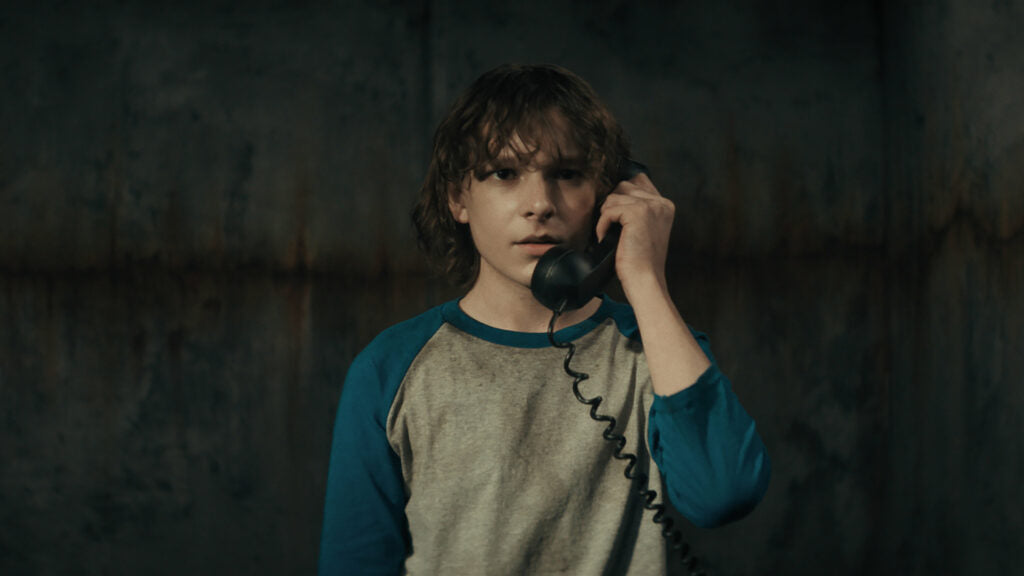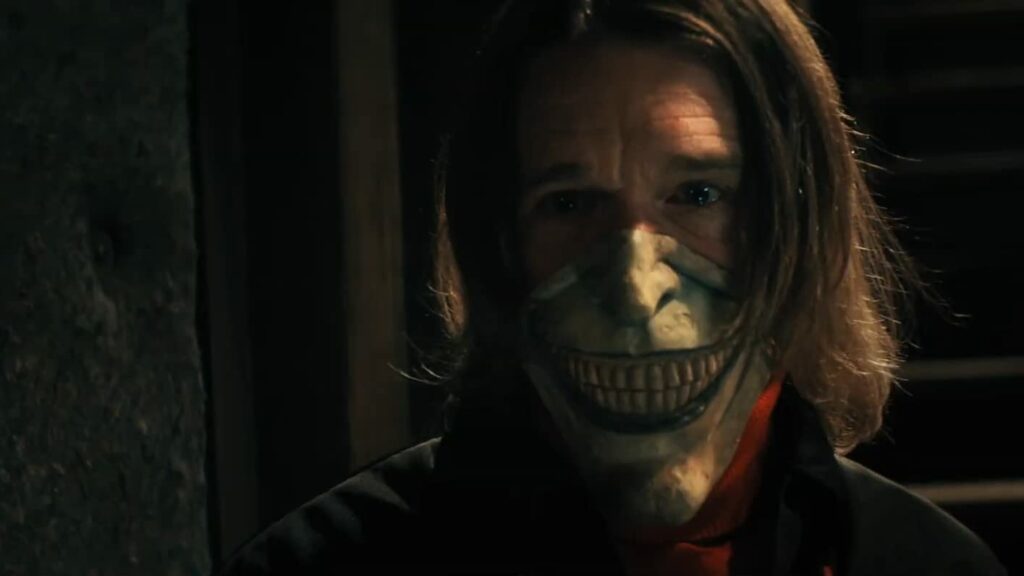Joe Hill has steadily become one of the most noteworthy horror writers of the past decade. His work - including Horns, NOS4A2 and Locke & Key - and their various film and television adaptations have established Hill’s distinct voice and vision in the field of fiction. Even so, stepping out of the eclipsing shadow of his father, Stephen King, is a daunting task. Hill can’t help but take influence from the literary icon in more ways than one, but perhaps no other story of his emulates the master than his 2005 short The Black Phone.
Set in the dreary Colorado suburbs of 1978, The Black Phone centers on a young boy named Finney Shaw (Mason Thames) navigating a perilous and less-than-ideal adolescence. The passing of his mother has left him alone with an abusive and alcoholic father (Jeremy Davies), who regularly beats both Finney and his little sister Gwen (Madeleine McGraw) with either his hands or his belt. Getting out of the house offers little reprieve from the torment, as a group of school bullies also get their kicks from beating up on poor Finney whenever they get the chance.
The talk of the town is the local serial killer known only as “The Grabber”. A man (Ethan Hawke) wearing a devilish mask has been abducting children and easily evading the police. As if life couldn’t get any worse for the kid, Finney becomes his latest victim. Trapped in a basement with nothing but a bed, a toilet and a disconnected old phone, the clock is running out as he tries to find a way to escape The Grabber before he’s killed - or worse.

Courtesy of Universal
Directed by Scott Derrickson (Sinister, Doctor Strange) this film adaptation expands on Hill’s original short story by wisely putting a focus on life for the Shaw siblings before Finney’s kidnapping. Thanks to strong performances from the young cast, we immediately understand the way life has stacked itself against them and countless other kids like them. Finney and Gwen only have each other and their bond and charming personalities are what give the film heart and wit through its more harrowing depictions of child abuse and bullying. They’re the light in the dark of the story’s subject matter, so to speak, and it helps prevent the film from being too grim or despairing.
Of course, that kind of balancing act when it comes to tone is a tricky feat. The Black Phone struggles a bit to find itself in the first act and ends on an honestly juvenile note that doesn’t really match everything that came before. Those faults are thankfully overshadowed by everything the film gets right, namely its excellent use of structure, setups and payoffs.
Hawks delivers on all of the appropriate menace that The Grabber exudes while also injecting an unsettling playfulness to him. All of his young prisoners fall prey to the sadistic games that he plays with them, all but Finney, who is far more of a survivor than The Grabber might have bargained for. And even though he’s isolated somewhere underground, he’s not alone. Supernatural forces are also at play in The Black Phone. Gwen starts receiving cryptic psychic visions that could help find her missing brother (not that any adults care to hear about them) while at the same time the decrepit titular phone on the wall begins to ring. Whenever Finney answers, he hears the voices of previous Grabber victims, all determined to help the boy escape the same terrible fate.

Courtesy of Universal
The film may not have much in the way of genuine horror outside of the occasional jump scare (and uh, dead kids) but what it does have is tremendous tension, playing more like a thriller with some ghosts thrown into the mix. The Grabber’s victims only call one at a time, no kid ever calls twice and there’s never a guarantee that whatever advice they give Finney will actually get him out. A loose floor tile or cable hidden in the wall or a door left ajar all offer possible methods of escape but no promises, plus whatever Finney does needs to be done fast. The Grabber is unpredictable in his words and actions, you can never be sure when he’ll be coming down the steps or what exactly he’ll do once he’s down there. The power of suggestion and implication is especially potent in The Black Phone.
Everything comes together in a sufficiently nail-biting climax, the kind that expertly builds itself up with both anxiety and excitement. Knowing what was to come, nearly everyone in my screening began adjusting themselves in their seats, leaning forward with anticipation. That’s the power of the movies, something that The Black Phone is able to tap into to become one of the year’s best scary picks. In case it wasn't obvious before, avoid suspicious black vans roaming around the neighborhood.
‘The Black Phone’ is now playing in theaters.




